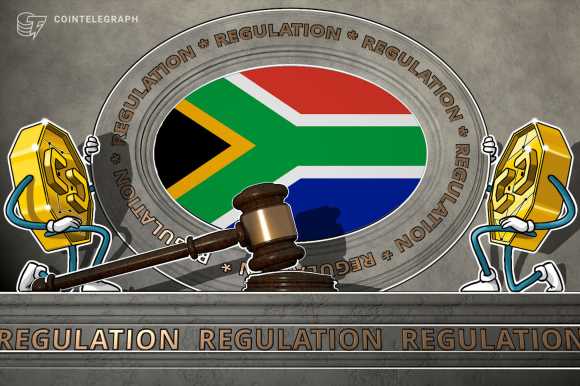South African financial service providers have been primed to offer cryptocurrency products and services to customers after regulatory amendments in the country.
This comes after South Africa’s Financial Sector Conduct Authority amended its financial advisory act from 2002 on Oct. 19, defining crypto assets in the country as financial products. Most importantly, the definition means that cryptocurrencies can now be offered by financial service providers, both domestic or international, given that they are licensed in South Africa.
South Africa already commands a growing number of retail cryptocurrency users estimated to include as many as six million individuals. The country’s Reserve Bank has also taken a measured approach in its regulatory stance of the sector in an effort to ensure investor protection without hampering innovation.
Cointelegraph touched base with two prominent cryptocurrency exchanges in the country, with both Luno and VALR serving significant user bases in South Africa. The companies are well placed to offer insights into the latest regulatory move, given that they cater to both retail and institutional clients in the country.
VALR CEO Farzam Ehsani labeled the FSCA’s move as ‘good news for South Africa setting a path towards regulating crypto asset service providers in the country’ while ensuring ‘they are serving the public with integrity.’
Marius Reitz, Luno general manager for Africa, echoed these sentiments by highlighting the importance of regulatory clarity not only for investors but for financial service providers in the country:
“The licensing requirements that will flow from this classification will drive high standards in the industry, particularly in relation to consumer protection, with potential investors easily able to identify those providers that satisfy regulatory requirements.”
Reitz also flagged the key benefit, which now allows financial advisors to formally advise clients on cryptocurrency investments. Before the FSCA amended the definition of crypto assets, financial advisors were not permitted to give advice on unregulated investment opportunities.
“The regulatory framework paves the way for wider institutional adoption. How this plays out will depend on the ability of more traditional finance companies and even banks to be able to fully support this newly classified financial product.”
Chris Becker, cyber banking managing executive at Tyme Bank, also provided insights to Cointelegraph. The South African digital bank welcomed the move to regulate cryptocurrencies within existing frameworks as it looks to drive digital money services and payments.
Becker believes the move could bring some comfort to individuals that may have been cautious of interacting with crypto asset service providers due to concerns of a lack of regulation, having worked for private wealth manager Investec as its blockchain lead in his previous role.
Becker also agreed that the regulatory move may support greater adoption in the long-term if financial service providers use the new product category to offer crypto asset products to their large customer bases.
Nevertheless, regulatory uncertainty has not stopped corporates and institutions from gaining exposure to cryptocurrencies in South Africa. Both exchanges already work with a number of institutional clients.
VALR serves more than 700 corporates and institutions, which includes a number of large traditional finance institutions in South Africa. Ehsani said the firm has been focused on building its infrastructure for the past five years to bridge traditional finance in the country to cryptocurrency markets. Luno also allows corporate customers to use its platform.
Meanwhile Becker highlighted the reality that traditional financial service providers may not necessarily invest in cryptocurrencies as a result:
“Other regulations such as the Pension Funds Act and the Foreign Exchange Control Act do not yet make provision for crypto assets yet.”
VALR’s CEO also believes that the country could see cryptocurrency-related exchange-traded funds (ETFs) and similar financial products being developed and released in the next few months now that regulatory oversight is becoming clear:
“I think we’ll start seeing many more financial products related to crypto in the near future. Many people have been working on this for some time and now with the Declaration, we should expect to see much of this work become visible to the public.”
Reitz offered a more measured take on the subject, highlighting the FSCA announcement as a first step in creating a broad regulatory framework for crypto assets in South Africa. He believes more clarity is needed around the wider application of the regulation with regard to permitted cryptocurrency financial products, highlighting America’s standpoint as an example:
“In the United States, Bitcoin ETFs can only hold BTC futures contracts or stocks of companies and other ETFs with exposure to cryptocurrencies as the SEC continues to evaluate the approval of ETFs that own BTC directly.”
Meanwhile, the FSCA delivered a more sobering message in a press conference that accompanied the Oct. 19 announcement. As Reuters initially reported, FSCA Regulatory Frameworks Department head Eugene Du Toit made it clear that cryptocurrencies are not recognized as legal tender in South Africa.
The regulator also stressed the importance of being able to grapple with scams and fraudulent activities in the space in an effort to protect local investors.
Source: Read Full Article
-
Terra lawsuit a ‘roadmap’ to attack other stablecoins: Delphi Labs
-
Top metaverse property investments suffer massive losses: Report
-
Sensitive data leaked in Kroll cybersecurity breach — Report
-
The First Court Hearing For Terra Co-Founder Held In South Korea
-
Elon Musk to rebrand Twitter to X, but Crypto Twitter has other ideas

